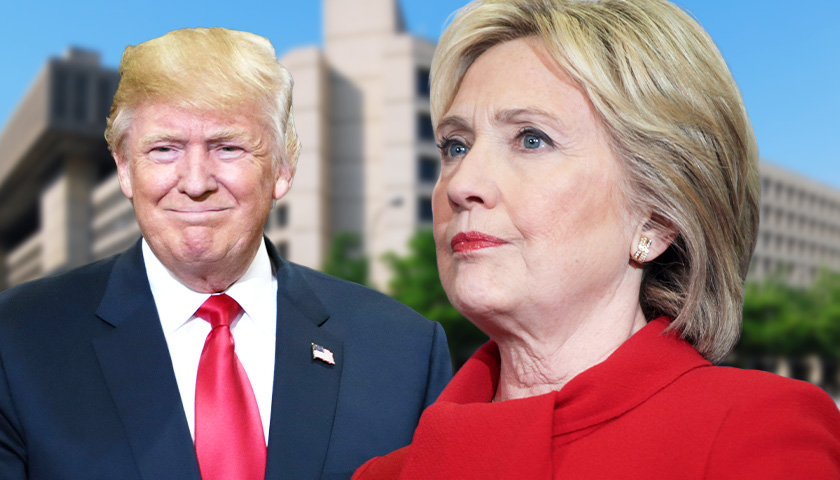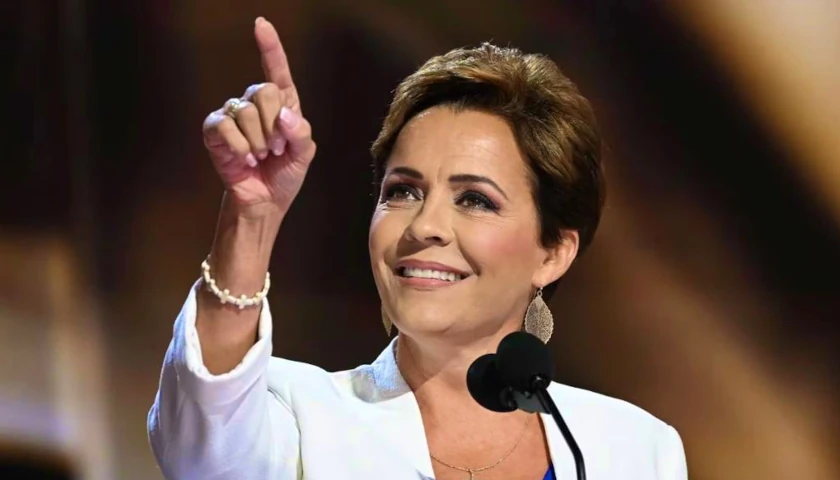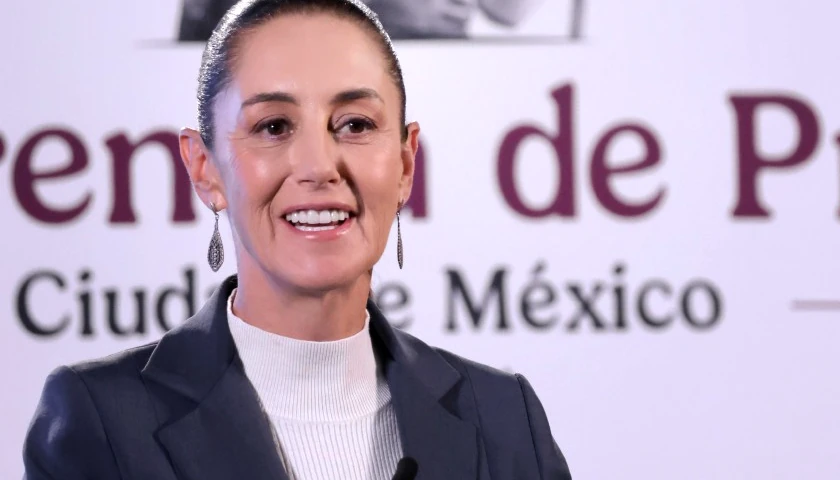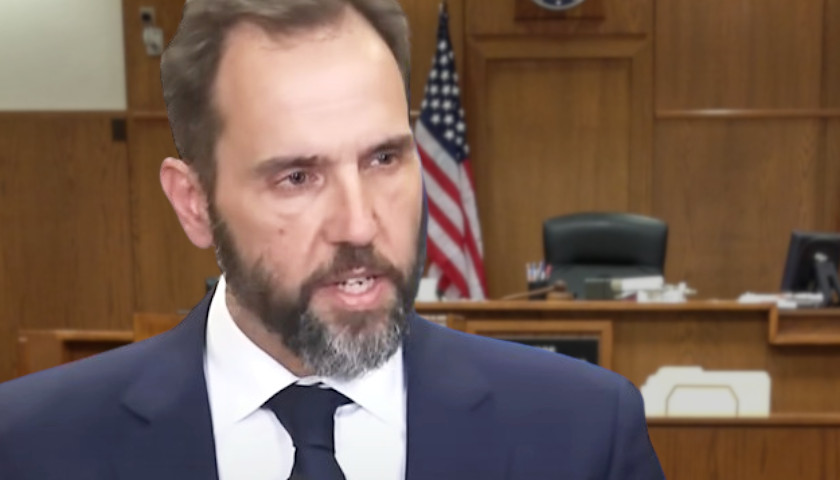by Paul Sperry
Former Attorney General Loretta Lynch obtained evidence that a computer contractor working under the direction of Hillary Clinton’s legal team destroyed subpoenaed records that the former secretary of state stored on a private email server she originally kept at her New York home, and then lied to investigators about it. Yet no charges were brought against Clinton, her lawyers, or her paid consultant.
The leniency accorded to Clinton contrasts with recent moves by Attorney General Merrick Garland to aggressively investigate former President Trump and his lawyers for allegedly obstructing investigators’ efforts to locate subpoenaed records at his Florida home. Legal experts say the apparent double standard may provide a useful defense for Trump and his legal team.
The treatment of Clinton included a deal with her defense team that required the FBI to, in effect, obstruct its own investigation. During its 2016 probe, the bureau agreed with her lawyers’ demands to destroy two laptop hard drives containing subpoenaed evidence immediately after searching for files on them. They did so while the information was still being sought by congressional investigators and even though the lawyers had served under Clinton at the State Department and were subjects of the FBI’s investigation. In fact, the laptops were theirs.
Long before it bowed to the request, the FBI suspected Clinton’s lawyers played hide-and-seek with evidence, making the concession that much more baffling.
The scandal first erupted on March 2, 2015, when news broke that Clinton had secretly set up a non-government email server in the basement of her Chappaqua, N.Y., mansion in the weeks before she started her job at Foggy Bottom in early 2009. She used the unauthorized and unsecured device to conduct official State Department business – including transmitting and storing classified information – which allowed her to bypass legally mandated archiving of her government records.
The next day, the House Select Committee on Benghazi sent her attorney David Kendall a letter advising his client to preserve all electronic records created since January 2009 and specifically not to delete any emails on her private server. The panel then issued a subpoena for records related to the deadly terrorist attack on the U.S. consulate in Libya.
Three weeks later, on March 25, Kendall and former Clinton chief of staff Cheryl Mills, who also acted as her personal attorney, asked a computer contractor with Platte River Networks, which hosted Clinton’s secret email server, to join a conference call with them, according to FBI documents. Over the next week, the contractor, Paul Combetta, deleted the entire email archive from Clinton’s server using a software program called BleachBit, which digitally “shreds” files to prevent their recovery.
All told, the paid Clinton agent scrubbed 31,830 emails from her server and backup files. In addition, he permanently removed duplicates of the emails from the laptops of Mills and another Clinton lawyer and aide, Heather Samuelson, where they also had been stored. According to FBI records, Combetta knew the documents he destroyed were under subpoena.
In July 2015, the FBI counterintelligence division opened a criminal investigation, codenamed “Midyear Exam,” in response to a referral from the intelligence community inspector general concerning Clinton’s unsecure server. The FBI predicated the opening of the probe on the possible compromise of highly classified Sensitive Compartmented Information. Emails classified at the SCI level were later found on Clinton’s server.
Some career FBI agents working on the case, which was tightly controlled within headquarters and deemed a “SIM,” or sensitive investigative matter, thought they had a slam-dunk case of obstruction, a key aggravating factor for prosecuting cases involving the mishandling of classified information or government records. All they had to do was get Combetta in a chair and pressure him to implicate the high-level Clinton surrogates who told him what they wanted done.
Several investigators believed “that Combetta’s truthful testimony was essential for assessing criminal intent for Clinton and other individuals, because he would be able to tell them whether Clinton’s attorneys — Mills, Samuelson or Kendall — had instructed him to delete emails,” according to a 2018 report by the DOJ’s inspector general.
But during voluntary interviews with FBI agents, Combetta falsely denied he had “deleted or purged” Clinton’s emails from the server or back-ups, and insisted Clinton’s legal team never requested that he do so.
Combetta refused to talk to investigators about the critical March 2015 conference call with Clinton’s lawyers that preceded his purge of evidence, the only topic he refused to speak about. So investigators and prosecutors agreed to give him immunity and interview him again. Still, they never got his account of the conference call. A written FBI summary of the interview, known as an FD-302 report, does not reference the call, indicating that agents failed to follow up on a key line of questioning in the investigation.
Investigators declined to pursue other aspects of the case as well. They obtained an email in which Combetta told a colleague he was part of a “Hilary[sic] coverup operation” and said he would elaborate later at a “party.” Asked about it, Combetta claimed he was just joking; the FBI accepted his explanation and did not appear to follow up with the colleague to learn what they discussed at the party.
The FBI also accepted another explanation for why Combetta, using the screen name “stonetear,” sought technical assistance on the Reddit forum on how to “strip out” the email addresses of a “VERY VIP” client from a “a bunch of archived email,” in an apparent reference to Clinton. (After Internet sleuths revealed stonetear was a name Combetta used in other forums, he began scrubbing his posts from the web.)
An FBI case supervisor told the inspector general that “he believed Combetta should have been charged with false statements for lying multiple times,” according to the IG report, but prosecutors refused to indict him. The FBI also obtained forensic evidence from the server that could establish that Combetta made the deletions, but prosecutors balked at charging him with obstruction.
Then-FBI Director James Comey personally agreed with the DOJ decision to give Combetta immunity rather than sweating him in a grand jury box, which typically is done with subjects who are lying, to get them to tell the truth.
Comey was forced to defend the deal in an October 2016 conference with FBI supervisors, who were hearing complaints from rank-and-file agents that headquarters handed out immunity deals “like candy” to Clinton witnesses. Comey explained the bureau wasn’t interested in prosecuting a small fish like Combetta, and sought only to massage him for information to “make a case on Hillary Clinton,” even though internal FBI emails reveal Comey already had decided to let Clinton off the hook. He did not explain why the contractor hadn’t been pressured more with threats to bring charges against him for lying to agents, the traditional investigative method for getting such an uncooperative witness to turn.
“With respect to Combetta, we found his actions in deleting Clinton’s emails in violation of a congressional subpoena and preservation order and then lying about it to the FBI to be particularly serious,” DOJ Inspector General Michael Horowitz said in his report. “We asked the prosecutors why they chose to grant him immunity instead of charging him with obstruction of justice.”
One DOJ prosecutor told Horowitz’s investigators they wanted to make Combetta “feel comfortable enough” that he would eventually cooperate on his own. Another said they weren’t interested in prosecuting a bit player for lying and that doing so would just bog down the investigation, which they were rushing to wrap up “well before” the November 2016 presidential election.
“I was concerned that we would end up with obstruction cases against some poor schmuck on the down that had a crappy attorney who [was] hiding the ball,” the unidentified prosecutor said.
“And so at the end of the day, I was like, look, let’s immunize him. We’ve got to get from Point A to Point B. Point B is to make a prosecution decision about Hillary Clinton and her senior staff well before the election if possible,” the prosecutor added. “And this guy with his dumb attorney doing some half-assed obstruction did not interest me. So I was totally in favor of giving him immunity.”
The prosecutors reported directly to then-DOJ counterespionage official David Laufman, who would later play a key role in the discredited Russiagate probe, including opening investigations on several Trump advisers and signing off on wiretap warrants targeting at least one Trump aide, even though he knew they were based on a fabricated dossier financed by the Clinton campaign.
Prosecutors also gave Clinton aides Mills and Samuelson immunity deals, over the objections of some FBI investigators who wanted to bring them before a grand jury to explain their actions.
A handful of agents also argued for issuing a search warrant to seize their personal laptops, which they used to upload all the emails from the Clinton server and cull away supposedly “personal” messages that they claimed were out of the reach of investigators. Instead, prosecutors opted to review the laptops through an unusual consent agreement, which restricted searches to certain files and specific dates – and nothing before or after Clinton’s tenure as secretary, which put any email exchanges with Combetta out of reach – and required the FBI to destroy the hard drives after conducting the limited search, according to documents outlining the agreement.
“This is simply astonishing given the likelihood that evidence on the laptops would be of interest to congressional investigators,” former Senate Judiciary Chairman Chuck Grassley and three other GOP congressional leaders complained in a letter to DOJ at the time.
In his talk at the FBI conference, Comey explained that he had to agree with prosecutors and defense lawyers to limit the search because of “huge concerns” that attorney-client privilege and attorney work product could be discovered on the laptops, a concern that apparently did not register in the broad, sweeping search of Trump’s records. Agents scooped up at least 520 pages of attorney-client privileged information during their raid of Mar-a-Lago, according to a federal judge who has ordered an independent inspector to review the seized records for privileged material.
Mills and Samuelson, who agreed to answer only a narrow scope of questions to prevent investigators from soliciting privileged information, were later allowed to sit in on Clinton’s own interview, which the FBI conducted after Comey had already drafted a statement exonerating her of mishandling classified information and obstructing justice. The director famously delivered the statement in a July 5, 2016, press conference, proclaiming the FBI found “no evidence” that Clinton’s emails were “intentionally deleted in an effort to conceal them.”
Trump Didn’t Get ‘the Same (Gentle) Treatment’
Grassley says the FBI “pulled its punches” investigating Clinton in comparison to Trump, who he says is being harshly investigated and prosecuted for the same offenses.
“Trump has not been provided the same (gentle) treatment given to Secretary Clinton and her associates,” Grassley asserted in a recent statement.
To be sure, the agency has used more intrusive methods probing Trump for similar allegations of mishandling classified information and concealing documents under subpoena.
Unlike the Clinton probe, where investigators and prosecutors sought to obtain evidence by consent whenever possible, the department has used a federal grand jury to issue subpoenas to Trump for thousands of documents, as well as surveillance video footage, from his Palm Beach estate. They also obtained a search warrant to raid his private office and family bedrooms. In addition to seizing more than 11,000 documents, agents confiscated some 1,800 personal items, including gifts, photo albums, clothing, passports, and medical and tax records, according to court records.
Clinton and her representatives were spared such heavy-handed tactics and indignities, the senator pointed out.
“Even though Secretary Clinton and her attorneys did not hand over classified records in their possession, they were not subject to a raid similar to what occurred at Mar-a-Lago,” Grassley said.
In the end, computer-forensics investigators and intelligence analysts were able to determine that at least 81 classified email chains were transmitted and stored on Clinton’s unclassified personal server. Their levels ranged from CONFIDENTIAL to TOP SECRET/SPECIAL ACCESS PROGRAM, a highly sensitive designation which makes access to certain information restricted even to Secret and Top Secret clearance-holders without a “need to know.” By comparison, the FBI recovered 100 documents with classified markings from its raid of Trump’s home. They range in level from CONFIDENTIAL to TOP SECRET.
In a court filing last month, DOJ said it developed evidence that presidential records held in a basement storage room at Mar-a-Lago may have been concealed or removed prior to a June visit by FBI agents to pick up classified documents, suggesting possible attempts to obstruct investigators.
Investigators issued a grand jury subpoena in May for the records and visited Mar-a-Lago on June 3 to pick them up. When they got there, the filing said, a Trump lawyer handed them a large envelope containing documents. Another lawyer acting as the official custodian of Trump’s records certified in a sworn statement that they conducted a “diligent” search for classified papers in response to the subpoena. Over the next two months however, officials “developed evidence that government records were likely concealed and removed from the storage room and that efforts were likely taken to obstruct the government’s investigation,” DOJ said in its filing, without specifying what it believes was removed from the room, or by whom. The affidavit explained that this suspicion is why it sent some 30 armed agents back to Mar-a-Lago early last month to conduct a massive search of the property.
Prosecutors say the additional documents they found with classified markings cast doubt on claims by Trump’s lawyers that they were fully cooperative with the subpoena. They are said to be focusing their investigation on Trump lawyer Christina Bobb, in particular, who allegedly acted as the custodian who signed the certification.
Bobb, who has not been charged with a crime, did not respond to requests for comment. Trump’s legal team has told the court that the DOJ “significantly mischaracterized” the June meeting with Bobb and another lawyer, but did not elaborate.
Laufman, the top prosecutor in the Clinton case and a caustic critic of Trump in the media, believes Trump should also be worried and “has significant criminal exposure” to an obstruction rap. “Either [his lawyers] wittingly lied or they got that assurance from their client, in which case Trump has jeopardy,” Laufman, an Obama appointee and donor, told Politico.
But at this point, investigators can only speculate that documents were intentionally moved or destroyed to avoid compliance with subpoenas, which would be a felony. Legal experts note that prosecutors were careful to say in their filing that documents were “likely” concealed and that efforts were “likely” taken to obstruct the investigation, indicating they still lack solid evidence.
“It is not clear from the filing if the FBI has evidence of intentional acts of concealment as opposed to negligence,” George Washington University law professor Jonathan Turley said.
By contrast, prosecutors had solid material evidence – including emails, phone calls, work tickets and computer forensics – that Clinton operatives conspired to not just conceal but actually destroy documents under subpoena in violation of Section 1519 of the federal criminal code, the same statute cited by the FBI in its warrant to search Mar-a-Lago. It bars the destruction or falsification of any documents or materials “with the intent to impede, obstruct or influence” an investigation.”
“Did Hillary Clinton violate 18 USC 1519 when emails from her private email server were destroyed during government investigation? Possibly, yes,” said Donald Skupsky, a lawyer specializing in government records-retention procedures.
“In December 2014, she did instruct her team to destroy remaining emails after 60 days. And ultimately, she never halted nor protested again any records destruction,” he added. “Under 18 USC 1519, Clinton may have concealed and covered up the destruction of records.”
Both the Trump and Clinton cases also invoke Section 2071, a federal statute which prohibits the willful concealment, removal, or destruction of federal records. But in investigating Clinton’s homebrew server scheme, prosecutors declined to pursue a Section 2071 charge because they argued the statute had “never been used to prosecute individuals for attempting to avoid Federal Records Act requirements by failing to ensure that government records are filed appropriately,” according to the IG report. Some legal experts say the same standard should apply to Trump, whom the DOJ said tried to avoid Presidential Records Act requirements.
Trump lawyer Jim Trusty said Trump’s retention of allegedly classified papers is akin to “an overdue library book” and complained that Biden administration prosecutors are holding him “to a different standard than anyone else” because he is a Republican.
U.S. District Judge Aileen Cannon earlier this month issued an injunction temporarily barring the Justice Department from using the seized material in its espionage investigation until a Special Master can review it for privileged and other information outside the scope of the probe.
Despite the order, the obstruction part of DOJ’s probe can move forward. Among other things, investigators can continue to interview witnesses about whether subpoenaed documents were moved or concealed.
“DOJ is in the midst of an ongoing criminal investigation pertaining to potential violations of the Espionage Act, as well as obstruction of justice, 18 USC 1519, and unlawful concealment or removal of government records, 18 USC 2071,” DOJ chief counterintelligence prosecutor Jay Bratt stated in a recent court filing.
– – –
Paul Sperry is an investigative reporter for RealClearInvestigations. He is also a longtime media fellow at Stanford’s Hoover Institution. Sperry was previously the Washington bureau chief for Investor’s Business Daily, and his work has appeared in the New York Post, Wall Street Journal, New York Times, and Houston Chronicle, among other major publications.
Photo “Hillary Clinton” by Gage Skidmore. CC BY-SA 2.0. Photo “Donald Trump” by Gage Skidmore. CC BY-SA 2.0. Background Photo “FBI Building in Washington, D.C.” by cisko66. CC BY 3.0.








